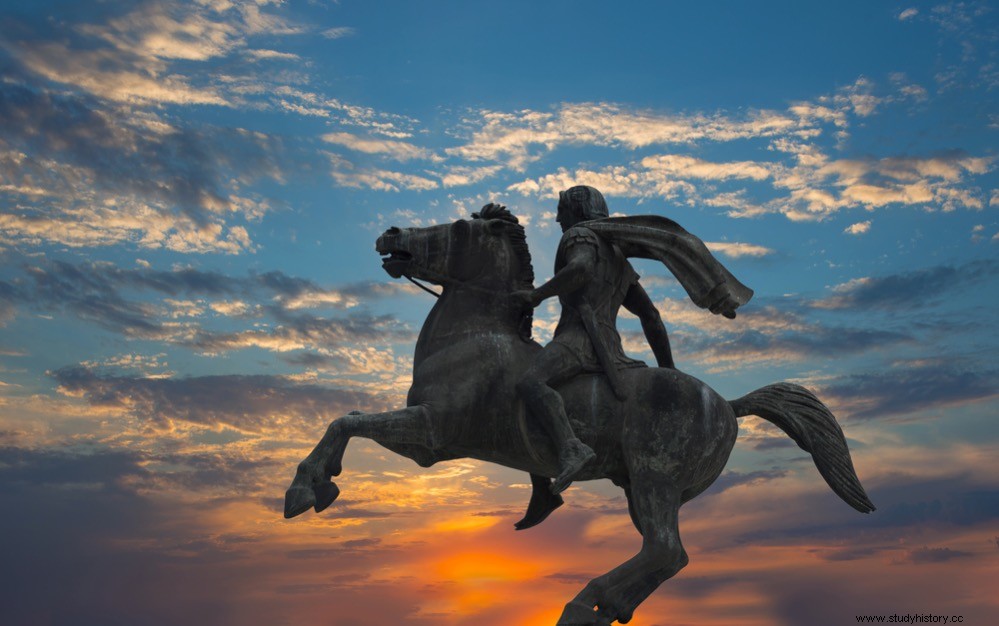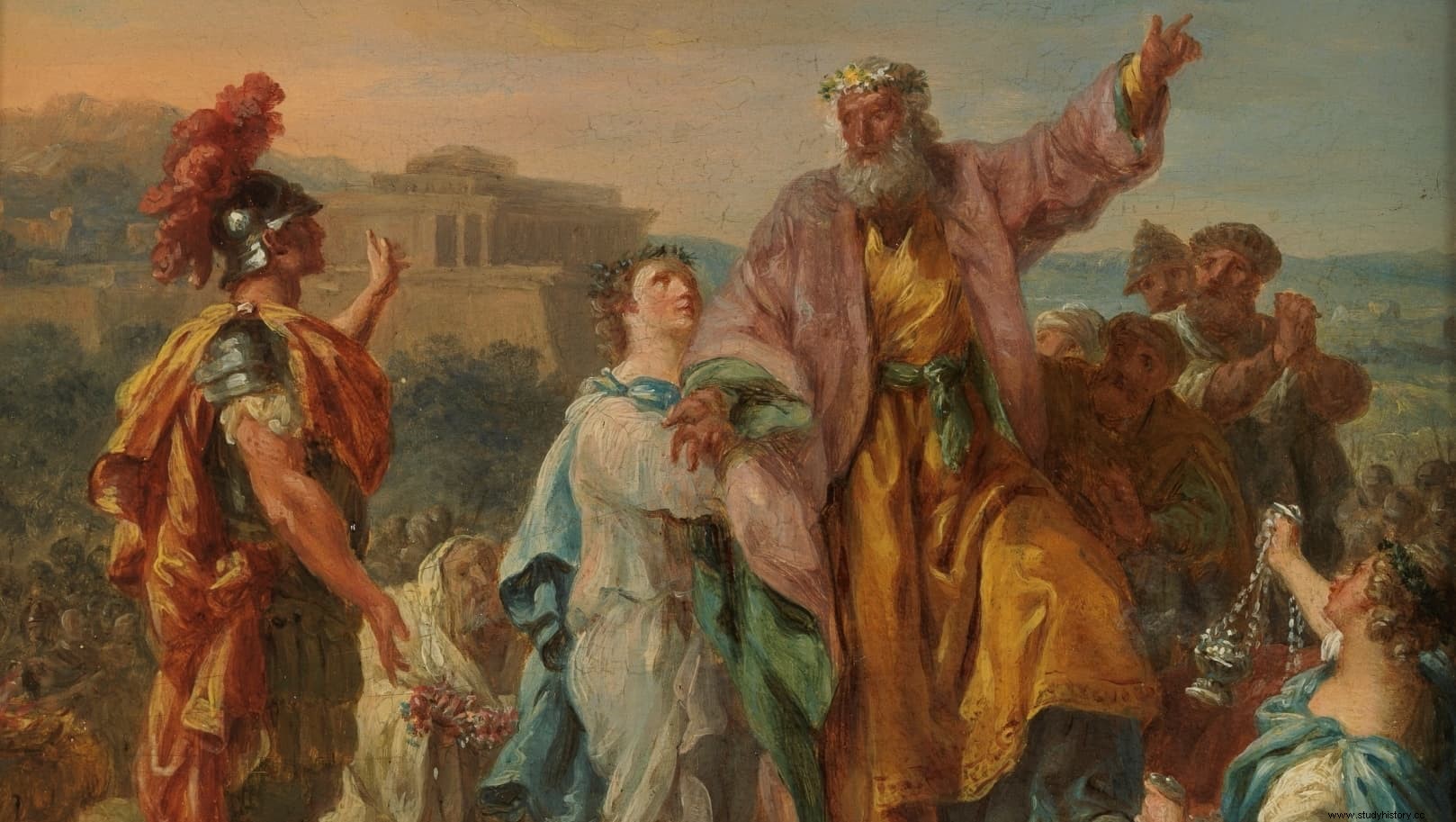Astypalea is a small island in the Greek Dodecanese, possibly a colony of Megara, where around 360 B.C. Onesicritus was born, historian and cynical philosopher follower of Diogenes of Sinope (the one who lived like a beggar, in a jar).
In the year 334 BC, when he was 26 years old, he crossed the Hellespont together with the army of Alexander the Great, accompanying philosophers, historians and other wise men who would later write about the conquered places, their customs and the peoples who inhabited them. Q>
Of all of them Onesicritus would not stand out for the rigor in his texts, but he would have the privilege of being chosen by Alexander for a very particular mission:to meet some wise men from India whom the Greeks first called Brahmins and later gymnosophists (naked philosophers), who lived in an ascetic way rejecting clothing and food, and practiced some curious postures of an ancient meditation discipline called yoga.

Onesicritus himself attributed the commission, picked up later by Strabo:
However, these gymnosophists were not completely unknown to the Greeks, since Diogenes Laertius tells that Democritus, the philosopher and mathematician who lived between the 5th and 4th centuries B.C. had contact with them:
Strabo echoes Onesicritus' surprise at his first encounter with fifteen of them, each motionless in a different posture:
He addressed one who replied kallāṇa (Greetings), henceforth known as Kalanos although his real name could have been Sphínēs.

This Kalanos would later accompany Alexander on his return, falling ill along the way and, according to Strabo and other sources, as was the custom among gymnosophists, he would immolate himself on a pyre upon reaching Pasargadae for it. With Onesicritus it seems that he was not friendly at all:
Finally Onesicritus, seeing that none of them would go to meet Alexander, as he had ordered, at least managed to get the so-called Mandanis or Dandamis to receive him, a meeting that took place in the forest:
Later Megasthenes, whose journey to India we have already told about here, would also meet them, being Strabo's main source for the division of him into Brahmins and Sramanas .
As for Onesicritus, if we listen to his own statements, Alexander would have been so satisfied with his good work that he would have appointed him pilot of the fleet (something that all historians consider highly unlikely) and, having arrived back in Susa, He was awarded a gold crown.
He wrote a work titled How Alexander Was Educated , now lost and known only by the quotes collected by other later authors, but it seems that in it he mixed both history and fantasy, as can be deduced from the criticisms of Strabo, Plutarch or Aulus Gellius.

Not much is known about his life after Alexander's death. Plutarch tells an anecdote in which Onesicritus reads the fourth book of his text to Lysimachus, which seems to indicate that it was at his court that he composed it, or at least that he lived under the protection of the Diadochus in his new Thracian capital of Lysimachia. .
In any case, it had to be before Lysimachus invaded Macedonia in 288 BC, as Onesicritus had died two years earlier at the age of 70.
